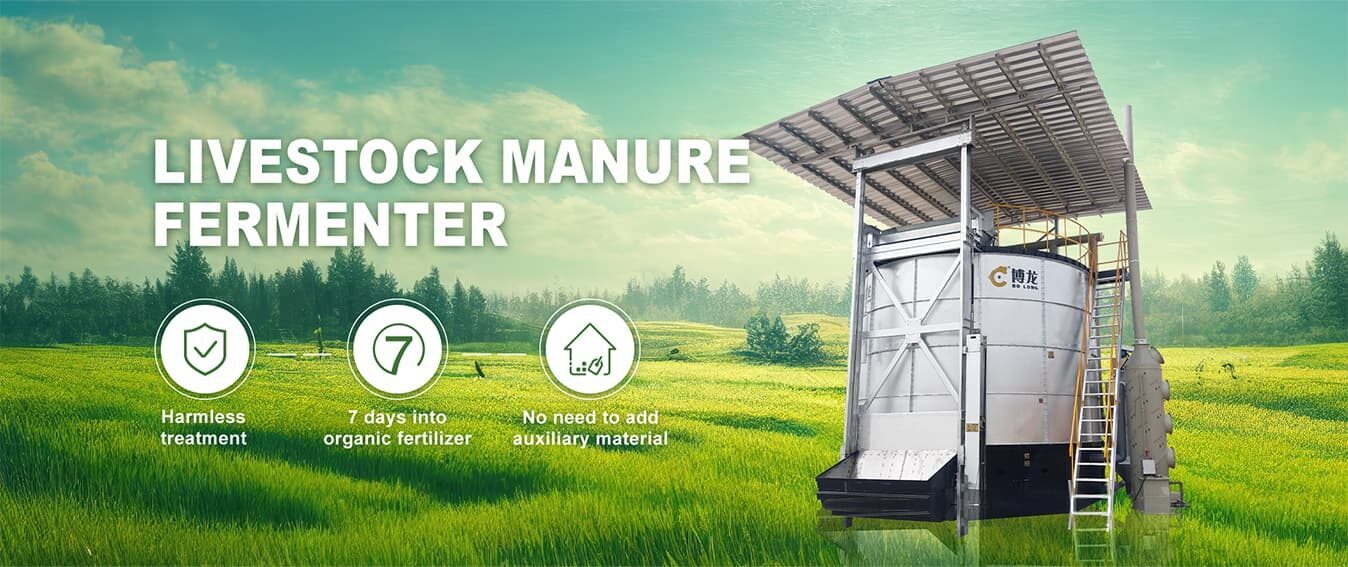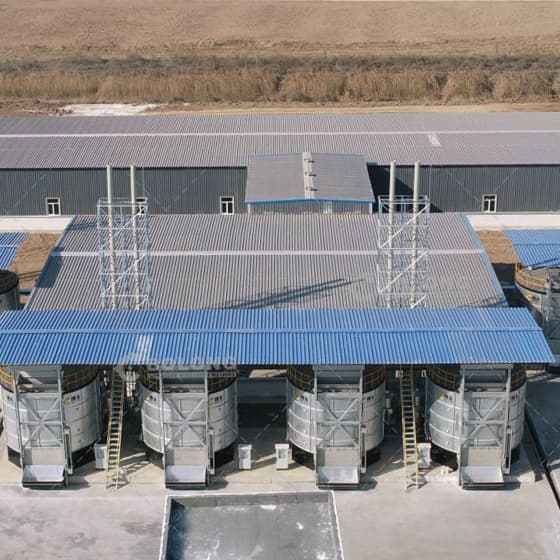Introduction
Livestock fermentation tanks play a crucial role in promoting sustainable agriculture by effectively managing waste, conserving resources, and reducing environmental impact. This article explores the multifaceted role of fermentation tanks in advancing sustainability in agriculture.

Waste Management and Resource Recovery
- Waste Conversion:
Fermentation tanks convert organic waste materials such as manure and crop residues into valuable resources such as biogas and organic fertilizer. This reduces reliance on chemical fertilizers and fossil fuels.
- Nutrient Recycling:
The compost produced in fermentation tanks contains essential nutrients that can be recycled back into the soil, enhancing soil fertility and reducing the need for synthetic fertilizers.
Renewable Energy Production
- Biogas Generation:
Fermentation tanks produce biogas through anaerobic digestion of organic waste. This renewable energy source can be used to generate electricity, heat, and biofuels, reducing reliance on non-renewable energy sources.
- Energy Self-Sufficiency:
Farms equipped with fermentation tanks can achieve energy self-sufficiency by utilizing biogas for on-site energy needs. This reduces energy costs and carbon emissions associated with conventional energy sources.
Environmental Protection
- Odor Reduction:
Fermentation tanks effectively reduce odors associated with livestock waste, improving air quality and minimizing nuisance odors for nearby communities.
- Water Conservation:
By converting organic waste into compost and biogas, fermentation tanks help conserve water resources by reducing the volume of wastewater requiring treatment and disposal.
Climate Change Mitigation
- Greenhouse Gas Reduction:
The capture and utilization of methane produced in fermentation tanks mitigate greenhouse gas emissions, contributing to climate change mitigation efforts.
- Carbon Sequestration:
The application of compost produced in fermentation tanks enhances soil carbon sequestration, helping to offset carbon emissions and mitigate climate change.
Community Engagement and Education
- Outreach and Education:
Farms utilizing fermentation tanks can engage with their local communities to raise awareness about sustainable agriculture practices and the environmental benefits of waste management technologies.
- Demonstration Projects:
Establishing demonstration projects showcasing the benefits of fermentation tanks can inspire other farms and communities to adopt similar technologies and practices.

Conclusion
Livestock fermentation tanks are indispensable tools for promoting sustainability in agriculture. By effectively managing waste, conserving resources, producing renewable energy, protecting the environment, and engaging with communities, fermentation tanks contribute to the transition towards more sustainable and resilient agricultural systems. Continued